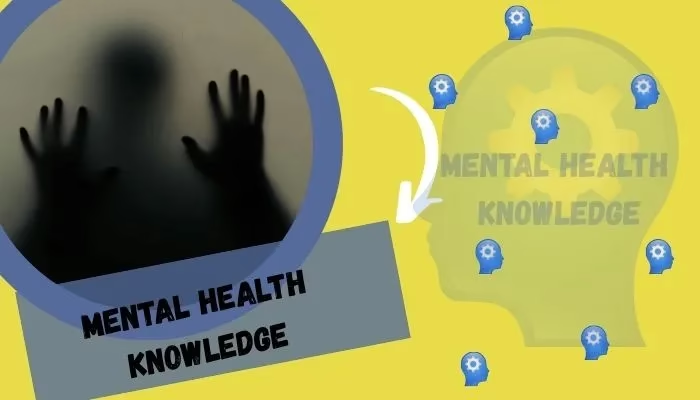
In today’s connected world, understanding mental health and immigrants has never been more important. Immigrants frequently face emotional problems, such as identity confusion, cultural irritation and relocation stress. These conditions significantly affect their mental well-being, frequently leading to anxiety, stress, and isolation. By exploring these complex meetings, we can promote soft-hearted systems that grabbing mental wellness and cultural diversity.
Mental Health and Immigrants: Navigating Emotional Identity Shifts
Relocating to a new country can bring hope, but also deep emotional disputes. Immigrants may struggle to equity their cultural core with the pressure to alter.
- Constant change disturb personal identity
- Pressure to understand leads to internal stress
- Cultural loss creates emotional division
- Identity confusion set off low self-esteem
Thus, feelings of mental health and immigrants means recognizing how self-identity shapes emotional resilience.
.
Mental Health and Immigrants: The Psychological Duty of Culture Breakdown
Culture shock is more than hurt—it’s far from a psychological experience which can affect action and emotional regulation.
- Sudden modifications in language and customs disturbed immigrants
- Social misunderstandings lead to emotional withdrawal
- Lack of familiarity increases mental fatigue
- Conflicting norms create internal tension
Help during cultural conversion is necessary to promote mental clarity and decrease psychological stress.
Mental Health and Immigrants: Stressors in the Migration Journey
Beyond the excitement of moving, the immigration journey includes significant sources of emotional stress.
- Separation from family members causes grief
- Fear of the unknown results in chronic anxiety
- Legal uncertainties heighten emotional instability
- Economic pressures increase mental tension
These emotional burdens point out the extremity of supporting mental health and immigrants through focused wellness services.
Mental Health and Immigrants: Barriers to Accessing Care
Immigrants frequently face multiple hurdles in allowing effective mental wellness services, infecting their recovery and stability.
- Language barriers reduce care quality
- Lack of culturally competent therapists limits support
- Financial trouble restricts get permit to therapy
- Fear of stigma disprin help-seeking discomfort
To build inclusive systems, these barriers must be broken up through education, funding, and policy improvement.
Mental Health and Immigrants: Cultural Disconnection and Emotional Strain
When immigrants feel cut off from their heritage or misunderstood in their new nature, emotional stress increases.
- Loss of traditions impacts emotional comfort
- Cultural isolation deepens loneliness
- Feeling “foreign” limits social bonding
- Racism and bias worsen mental fatigue
Managing cultural identity is key to equity, mental wellness and belonging.
Mental Health and Immigrants: Tools for Emotional Resilience
Helping immigrant communities with emotional gear promote long-term mental well-being and healing.
- Peer support groups offer shared understanding
- Mindfulness practices reduce anxiety
- Journaling promotes emotional awareness
- Music and art restore cultural connection
Customizing these techniques around cultural identity enhances their power in promoting stability.
Mental Health and Immigrants: Empowering Community Solutions
Community help plays a main part in immigrant mental fitness. When society provides a safe place, immigrants succeed.
- Community centers provide education and emotional outlets
- Local programs introduce mental health awareness
- Faith-based support offers cultural familiarity
- Public campaigns reduce stigma and encourage openness
Therefore, boosting mental health and immigrants outcomes requires cooperation across sectors.
Mental Health and Immigrants: The Power of Self-Advocacy
Encouraging immigrants to promote their mental wellness can fix up their emotional deeds and build freedom.
- Education on rights empowers help-seeking
- Story-sharing reduces shame and fear
- Communication tools support clear expression
- Cultural pride reinforces personal identity
These methods cultivate self-confidence and strengthen personal recovery pathways.
Culturally Competent Care Matters
Physicians and mental wellness specialists must understand cultural nicety to provide meaningful help.
- Training in cultural sensitivity improves empathy
- Translators and bilingual staff ease communication
- Respect for rituals and values boosts comfort
- Diversity in therapy models increases access
Culturally aware services are critical to improving mental fitness and immigrants’ experiences in care systems.
Immigrants: Role of Schools and Workplaces
Institutions have a powerful control on immigrant well-being by providing inclusive, supportive environments.
- Schools with diverse counselors support youth mental health
- Workplaces offering cultural training improve inclusion
- Flexible schedules reduce adjustment pressure
- Mental wellness workshops increase awareness
Creating safe institutional spaces is essential for emotional success.
Mental Health and Immigrants: Policy Reform for Lasting Change
Governments must categorize immigrant well-being through coverage changes that increase equity in mental fitness access.
- Fund programs specifically for immigrant support
- Include immigrant voices in mental health policy development
- Promote language access in public services
- Reduce barriers through legal reform and education
Inclusive policy shifts lead to stronger, more emotionally stable societies.
FAQs
- Why is mental fitness important for immigrants?
Immigrants frequently face specific emotional challenges which include way of life shock, language limitations, and social isolation. Providing focused mental fitness help can decrease anxiety and improve their global well-being. - How can communities assist enhance mental fitness for immigrants?
Communities can help by providing inclusive spaces, socially sensitive programs, and equally helping groups that decreases stigma and provide emotional safety.
- What types of pressure do immigrants commonly face?
Immigrants commonly deal with legal unreal abilities, identity struggles, social disconnection, and economic pressure—all of which affect their mental health.
Conclusion: Building Emotional Bridges with Compassion
Protecting mental health and immigrants needs empathy, community commitment, and culturally skilled practices. When systems honor the emotional complexity of migration, they build stronger connections and inclusive care.
By grabbing variety and decreasing cultural stressors, societies can protect immigrant mental fitness and foster emotional resilience throughout all communities.
